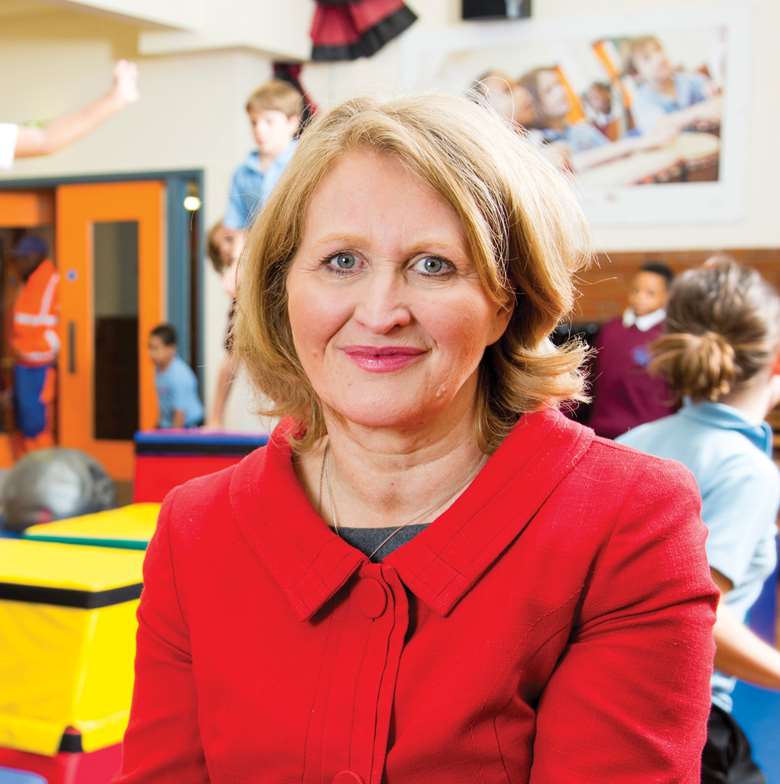Children's commissioner: Next PM should spend billions on children, not tax cuts
Nina Jacobs
Thursday, July 4, 2019
The children's commissioner for England is challenging the next Prime Minister to pledge a £10bn rescue package to rebuild services for the most vulnerable children and end high-cost crisis-led provision.

Anne Longfield is using the launch of her Vulnerability Report today to challenge leadership rivals Boris Johnson and Jeremy Hunt to use billions of pounds they have earmarked for tax cuts to "mend broken childhoods" instead.
The annual report, now in its third year, estimates around 2.3m children are growing up with a vulnerable family background, including those with parents with mental illnesses, addiction problems or domestic violence.
Of these, 1.6m receive either "patchy or no support at all", including 830,000 children who are "invisible" to services, the report claims.
The analysis also reveals fewer young people are receiving help, with a quarter of all spending on children now going on 1.1 per cent of those in need of acute and specialist services.
- Analysis: Restructuring children's services on early intervention approach
- Analysis: Deprivation is key factor affecting spending on children's services
One council analysed by the children's commissioner was found to be spending 20 per cent of its entire children's services budget on just 10 children.
In a speech launching the report, Longfield said tackling the scale of the problem would require strong leadership from central government and capital investment in institutions to help the most vulnerable children.
It would also need a "10- to 20-year investment in family and child support, commitments and targets to identify and support children's mental health needs and those of their parents", the commissioner said.
"Our initial calculation suggests it might cost in the region of £10bn per year to fix this broken system.
"It might be more, it might be less but what I do believe is it'll save money in the long term. The cost of social chaos is immense."
Longfield is calling for the government to deliver increased investment in early years support such as Sure Start and family hubs as well as earlier help for children with mental health problems and special educational needs.
Schools should also open later and in the holidays and youth services be provided to tackle gang violence, she added.
Responding to the report's findings, the Local Government Association (LGA) said early intervention services such as children's centres and family support services were crucial in supporting children and preventing issues escalating further.
However, Anntoinette Bramble, chair of the LGA's children and young people board, said children's services were at a "tipping point" as a result of increasingly high levels of demand for support and cuts in central government funding.
"Without more investment, councils will find it increasingly difficult to give children and families the support they need to thrive," she said.
LGA figures published this week show councils are seeing more than 560 cases of children with mental health disorders every day - an increase of more than 50 per cent over a four-year period.
The Early Intervention Foundation praised the commissioner for highlighting the challenge for councils and the problems obtaining accurate data on numbers of affected children and levels of spending.
Donna Molloy, the foundation's director of policy and practice said: "The report is also right to highlight the lack of an agreed framework of measurement for children's outcomes.
"Spending is only one half of the value question: without data on outcomes and impact, we can't say with any confidence whether our current resources are being used to best effect."
The government said it was making "record investments" in education and children's services to help improve outcomes and support young people to overcome the challenges they face.
The government said: "This includes action across government on children's mental health, making sure excluded pupils receive a good education, tackling the root causes of violent crime, supporting parents with early learning at home, and providing tailored support for children with special educational needs and disabilities.
"With council and school budgets under pressure, £2.4bn would be provided each year to support disadvantaged pupils through the pupil premium.
"We are gathering as much evidence as possible on what works to support those most in need ahead of the Spending Review."




